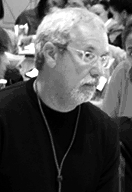 |
| Sam Piha |
With the new presidential administration and congress, there are both threats and opportunities we should be aware of. Below, we reached out to Betsy Brand, Executive Director of the American Youth Policy Forum (AYPF) and Gina Warner, Executive Director of the National AfterSchool Association (NAA) to share their thoughts on this. In future blog posts, we will keep our readers informed including information from the Afterschool Alliance and the Partnership for Children and Youth.
 |
| Betsy Brand, AYPF |
A: I think it’s unlikely that there will be much attention focused on afterschool/expanded learning with this Administration, unless it becomes linked to an agenda on expanding child care or as a way to reduce teen delinquency.
There is a chance that afterschool could play a role in the school choice debates by allowing parents the freedom to select programs that meet the needs of their children, but I think that’s somewhat unlikely, too. The biggest challenge for discretionary programs will be the budget and appropriations. If this Administration increases spending for infrastructure, defense, and due to health care changes, there will be very little money for domestic discretionary programs like 21st CCLC. I believe we are going to see major appropriations battles over the next few years with regard to Labor-HHS-Ed and other domestic programs.
Q: What should we be prepared to do to ensure ongoing support for afterschool/expanded learning?
A: It’s time to make sure that advocates are busy contacting their Senators and Representatives. They are the ones that will have to hold the line on cuts to 21st CCLC and other programs that support afterschool and expanded learning. The positive thing is that afterschool already deserves very wide and bi-partisan support in Congress. We need to build on that and ensure that new members and new staff continue to hear how important afterschool is from their constituents – over and over again.
 |
| Photo Credit: saveafterschool.com |
 |
| Gina Warner, NAA |
A: I spent a large portion of my career working in New Orleans, Louisiana, the city that leads the nation with the largest percentage of students enrolled in public charter schools. As the leader of the city's afterschool intermediary for many years, I have a lot of experience building positive partnerships between afterschool providers and school leaders. Those experiences give me hope that afterschool can—and will—play a meaningful role in the growth of school choice.
Here are four things I know:
1. Afterschool is choice.
Inherent in many of the discussions about school choice is the belief that parents and children should have the ability to choose an educational environment that best meets their needs. Every day, 10.2 million children choose to participate in afterschool programs that enhance their academic, social, emotional and physical development. We need to embrace this message and begin to view it as central to our mission of growing afterschool investment.
2. Strong school leaders value afterschool.
High-quality afterschool programs positively impact school attendance, behavior and coursework. Strong school leaders see a high-quality afterschool program as an integral part of delivering successful outcomes for their students.
3. Strong afterschool programs drive student enrollment.
In cities like New Orleans and Washington, D.C.—where there is a competitive marketplace of educational options for families—those schools offering afterschool programs are viewed much more favorably by families and are often the schools with the longest waiting lists for admission.
4. Both in school and out of school, quality matters.
Just creating more choices is not sufficient to ensure the outcomes we want and need for all of our children. We must invest in the people that do this work, so they can continue to deliver high-quality learning and enrichment experiences for all children before, during and after the school day.
I will continue to advocate for increased investment in afterschool, because I believe in the positive benefits of strong afterschool programs for children, families and communities. Investments in school choice cannot come at the expense of investments in creating greater access to high-quality afterschool programs. I am hopeful that by working together—with a shared vision of success for all—afterschool can and will be a part of a growing school choice landscape.
-----------------------
Betsy Brand has served as the Executive Director of AYPF since 2004, and she served as Co-Director of the organization since 1998. Betsy has spent her career working on education, workforce, and youth policy and specializes in comprehensive approaches to helping young people be prepared for today’s careers, lifelong learning, and civic engagement.
Gina Warner was named President and CEO of the National AfterSchool Association in June 2012. NAA - the voice of the afterschool profession – has over 20,000 members across the country and hosts the most comprehensive program of professional development opportunities for afterschool professionals anywhere in the United States.










